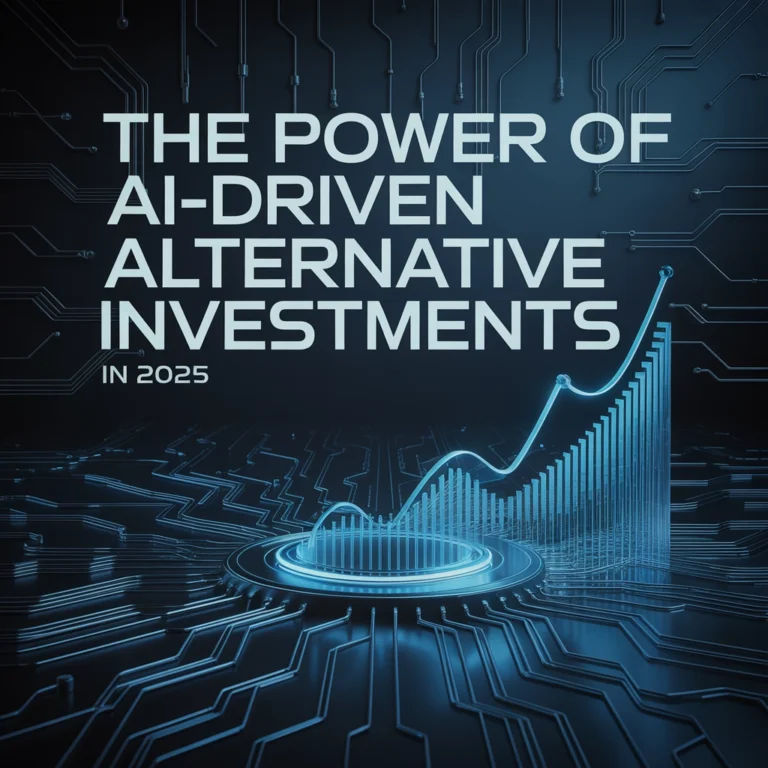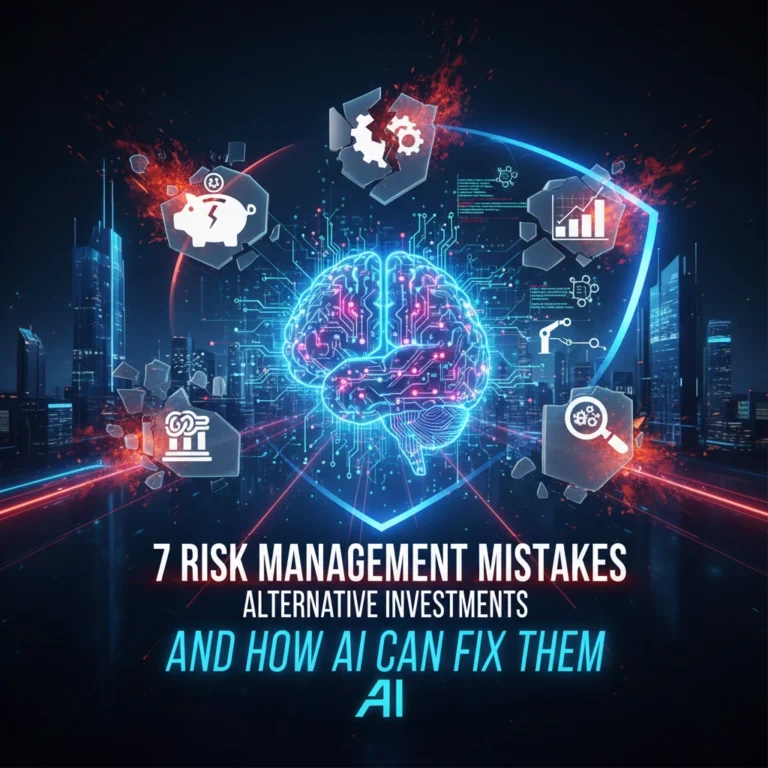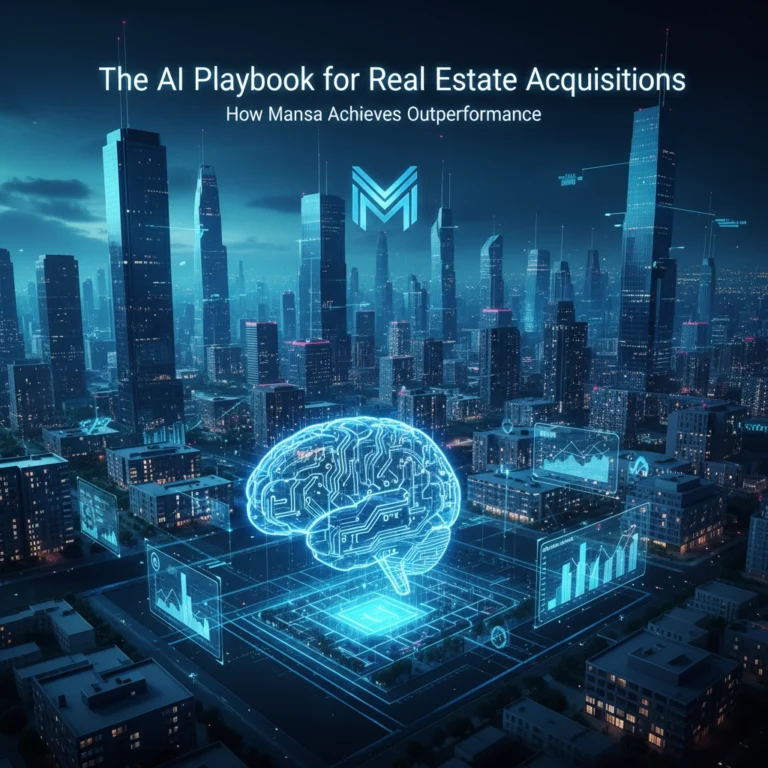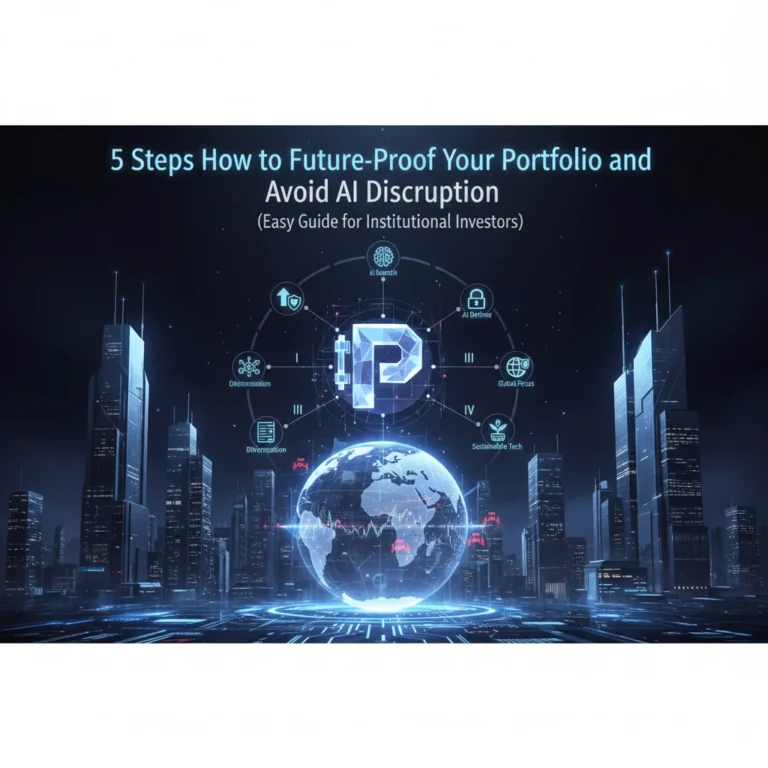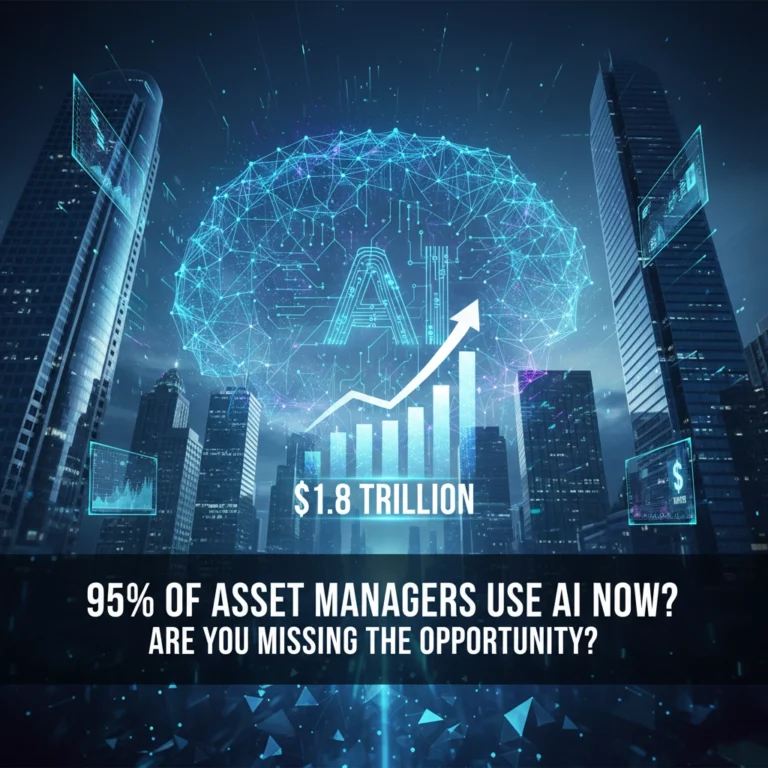AI vs Traditional Methods: Which Is Better For Your Alternative Investment Strategy?
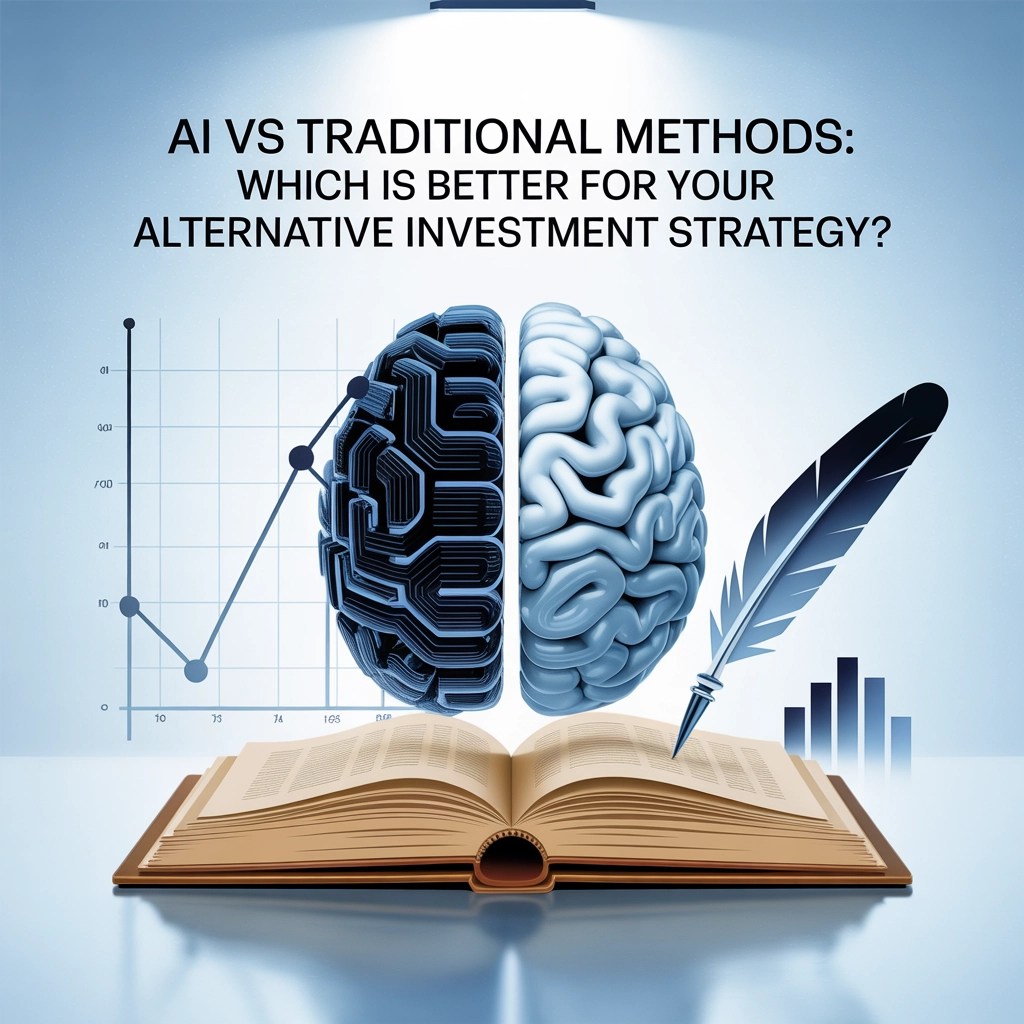
The alternative investment landscape is experiencing a fundamental transformation as artificial intelligence collides with decades of established investment methodologies. Today's investment managers face a critical decision: embrace AI-driven approaches that promise unprecedented analytical capabilities, or rely on time-tested traditional methods that have built fortunes for generations.
This isn't simply a technology versus experience debate: it's about understanding which approach delivers superior risk-adjusted returns in today's complex investment environment. With quantitative investment strategies already generating $370 billion in trading volume by mid-2022, the momentum behind AI-powered alternatives is undeniable.
The AI Revolution in Alternative Investments
AI-driven investment strategies represent a paradigm shift in how we process information, assess opportunities, and manage risk. The technology's ability to analyze vast datasets and identify patterns that escape human detection has created new possibilities for alpha generation.
Unprecedented Data Processing Power
Modern AI systems can simultaneously analyze thousands of data points across multiple asset classes, macroeconomic indicators, and market sentiment metrics. This capability extends far beyond traditional quantitative models, incorporating unstructured data sources like news sentiment, satellite imagery, and social media trends.
The speed advantage is equally compelling. AI tools can complete due diligence processes that traditionally required weeks of analyst time in a matter of hours. Contract review, financial analysis, and initial risk assessment can be automated while maintaining accuracy levels that match or exceed human performance.

Advanced Pattern Recognition and Predictive Analytics
Machine learning algorithms excel at identifying subtle correlations and patterns across historical data that inform future investment decisions. These systems can process decades of market data, economic cycles, and company performance metrics to forecast potential outcomes with remarkable precision.
AI-powered risk management systems evaluate multiple scenarios simultaneously, assessing how macroeconomic factors like inflation rates, interest rates, and geopolitical events might impact portfolio performance. This multi-dimensional analysis provides investment managers with sophisticated risk exposure assessments that traditional methods struggle to replicate.
Bias Mitigation and Emotional Neutrality
Traditional investment decisions often suffer from cognitive biases that cloud judgment: confirmation bias, anchoring effects, and overconfidence can lead to suboptimal investment choices. AI systems operate without emotional interference, making decisions based purely on data-driven insights and predefined parameters.
However, AI isn't without limitations. These systems require substantial computing infrastructure and sophisticated data management capabilities. More critically, AI should amplify human expertise rather than replace it entirely: the technology works best when combined with human oversight and strategic direction.
The Enduring Value of Traditional Investment Approaches
Despite technological advances, traditional investment methodologies continue delivering value through elements that AI cannot easily replicate. The human element in alternative investments remains irreplaceable for certain critical functions.
Relationship Capital and Deal Flow
Alternative investments often depend on exclusive deal flow and privileged access to opportunities. Traditional investment professionals build extensive networks over decades, creating relationships that provide early access to premium investment opportunities. These personal connections and trust-based relationships cannot be automated or replicated through algorithmic processes.
Successful alternative investment managers understand that deals are made between people. The ability to assess management teams, understand cultural dynamics, and navigate complex negotiations requires human intuition and interpersonal skills that remain beyond AI capabilities.

Qualitative Assessment Excellence
Traditional methods excel at evaluating intangible factors that significantly impact investment outcomes. Assessing management quality, company culture, competitive positioning, and industry dynamics requires nuanced understanding that experienced investment professionals develop through years of market engagement.
These qualitative factors often determine investment success more than quantitative metrics alone. A management team's track record, their response to market challenges, and their strategic vision cannot be adequately captured in datasets that AI systems typically analyze.
Market Experience and Intuition
Seasoned investment professionals possess institutional knowledge accumulated through multiple market cycles. This experience provides context for unusual market conditions and helps identify when historical patterns may not apply to current situations.
Traditional approaches also maintain flexibility in rapidly changing market conditions. While AI systems may be rigid when encountering scenarios outside their training parameters, experienced managers can adapt strategies based on evolving market dynamics and emerging opportunities.
Strategic Comparison: When Each Approach Excels
The choice between AI-driven and traditional methods often depends on specific investment contexts and organizational capabilities.
AI-driven approaches perform best when:
- Analyzing large, structured datasets across multiple variables
- Conducting initial screening and due diligence across numerous opportunities
- Managing quantitative risk models and portfolio optimization
- Processing market data and identifying statistical patterns
- Automating routine operational tasks and reporting functions
Traditional methods excel when:
- Building relationships and accessing exclusive deal flow
- Assessing management teams and organizational culture
- Navigating complex negotiations and deal structures
- Evaluating qualitative factors and industry dynamics
- Adapting to unprecedented market conditions requiring judgment calls

Implementation Strategies for Different Investment Organizations
Large Institutional Investors
Sophisticated institutions with substantial resources should pursue hybrid approaches that leverage AI's analytical capabilities while maintaining human expertise for strategic decisions. These organizations can invest in the computing infrastructure and talent required to implement comprehensive AI systems while preserving relationship-focused traditional elements.
The optimal strategy combines AI-powered screening and analysis with human-driven final investment decisions. This approach captures efficiency gains from automated processes while ensuring qualitative factors receive appropriate consideration.
Mid-Market Investment Firms
Medium-sized firms may benefit from gradual AI integration, starting with specific operational improvements rather than comprehensive system overhauls. Initial implementations might focus on due diligence automation, risk monitoring, or portfolio reporting while maintaining traditional approaches for deal sourcing and client relationships.
This phased approach allows firms to capture immediate efficiency gains without overwhelming existing capabilities or requiring massive infrastructure investments.
Sector-Specific Considerations
Technology-focused investment strategies are natural candidates for AI implementation, as these sectors generate the data volume and variety that machine learning systems can effectively analyze. Conversely, strategies focused on relationship-dependent sectors like real estate or private equity may benefit more from traditional approaches supplemented by selective AI tools.
The Future of Alternative Investment Management
The most successful alternative investment strategies will integrate both approaches rather than choosing exclusively between them. AI excels at processing information and identifying patterns, while humans provide strategic context, relationship management, and qualitative judgment.
This hybrid model acknowledges that investment success requires both analytical rigor and human insight. AI systems can enhance traditional investment processes by providing faster, more comprehensive analysis, while human expertise ensures that qualitative factors receive proper consideration and strategic decisions align with client objectives.
The key lies in understanding each approach's strengths and implementing them where they provide maximum value. Organizations that successfully balance AI-driven efficiency with human-centered relationship building and strategic thinking will likely achieve superior risk-adjusted returns in tomorrow's alternative investment landscape.
Rather than viewing this as a zero-sum competition, forward-thinking investment managers are creating integrated platforms that harness the best of both methodologies. The future belongs to those who can effectively combine machine-powered analysis with human wisdom, creating investment processes that are both analytically sophisticated and strategically sound.

